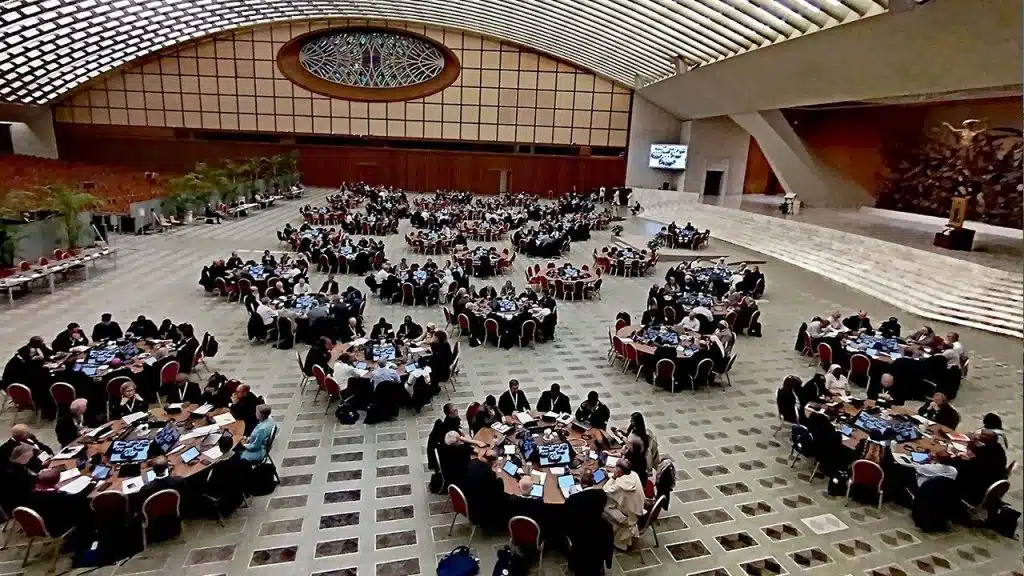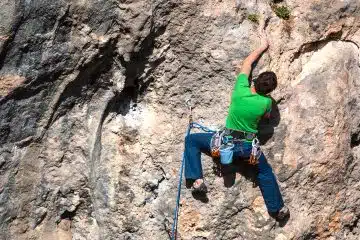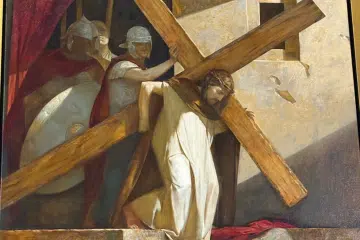New USCCB President: Immigration remains priority for US Bishops
By Christopher Wells
The question of immigration is “a burning issue” for American bishops, Archbishop Paul Coakley told Vatican News in an interview following his election as the new president of the United States Conference of Catholic Bishops (USCCB).
The United States’ almost unique situation as a nation of immigrants, a nation “built on migration experience,” drives the Bishops’ need to accompany and support immigrant communities throughout the country, by helping to alleviate their fears and provide the accompaniment they need, the Archbishop said.
But beyond support and accompaniment, he continued, there is need for “the proper kind of advocacy,” that involves the Bishops using their influence “to advocate for the good of the nation in terms of welcoming immigrants and helping to ensure that the laws of our nation and the procedures and process within our nation facilitate a smooth migration process for immigrants” – including religious workers who migrate to the United States.
In particular, Archbishop Coakley said the U.S. Bishops are working to be attentive to the needs of “our immigrant brothers and sisters,” to tone down the rhetoric surrounding immigration, and “to calm the fears of so many who live in insecurity.”
He also highlighted the need for the country to protect its borders and to ensure that “immigration is carried out in an orderly fashion.”
With those concerns in mind, Archbishop Coakley said the Bishops want to reassure immigrants as well as citizens in the face of fear and uncertainty. “Our goal,” he said, “is to accompany our migrant brothers and sisters, but also to work to enact just laws governing immigration and to ensure that those who need to be in the country are able to remain with their families.”
Agents and instruments of communion
Asked about how the U.S Bishops can help to heal divisions in the country, the new USCCB president said they are working to follow Pope Leo’s lead “in helping to be agents and instruments of communion that will set an example in our society, in our country, that will help stand against the tendency toward increased polarization.”
He pointed to the need to listen to one another and to learn to communicate with one another on the basis of mutual respect and charity. “Disagreement will always be a part of human relations and relations in the Church and within the College of Bishops,” he admitted. “But to disagree with reverence and respect, and to listen to one another – I think that’s very much a part of the whole focus on synodality that not only Pope Leo, but certainly Pope Francis before him, has been urging us to walk in this new way.”

Growing along the synodal path
With regard to synodality, Archbishop Coakley said the American Bishops are committed to participation, noting that the Church in the United States already has numerous structures in place that allow them to practice consultation at various levels.
However, he acknowledged that the Church is being invited to enter into the “depth” of listening and dialogue – and, using a “favourite word of Pope Francis,” the “style… of how we listen to one another and dialogue with one another and engage with one another.”
“I think that’s something we can continue to grow in along this synodal path,” he said.
The meaning of synodality
Archbishop Coakley said the Church in the United States is “growing” in synodality and is committed to making progress “in this new path,” while recognizing “a bit of misunderstanding” and even “lack of clarity about what it means to be a synodal Church.”
When asked for a simple explanation of synodality, he replied, “The simplest path was one, I think, that Pope Francis perhaps laid out when he said it is walking together.” Expanding on that thought, the Archbishop continued, “So that’s learning to listen, being willing to engage in dialogue, and learning to cooperate with one another. That sounds almost too simple, but I think that’s the heart of what Synodality means.”
Highlighting “the sense of belonging within the Church,” Archbishop Coakley said, “It’s not the Bishop’s Church. It’s not the pastor’s Church. It’s our Church, members of the baptized living in communion with one another, and with those entrusted with leadership in the Church.”
Bishops and priests “need to lead the way and show the way” but being a synodal Church requires the participation of all, “committed to building communion with one another to ensure the unity of the Church.”













